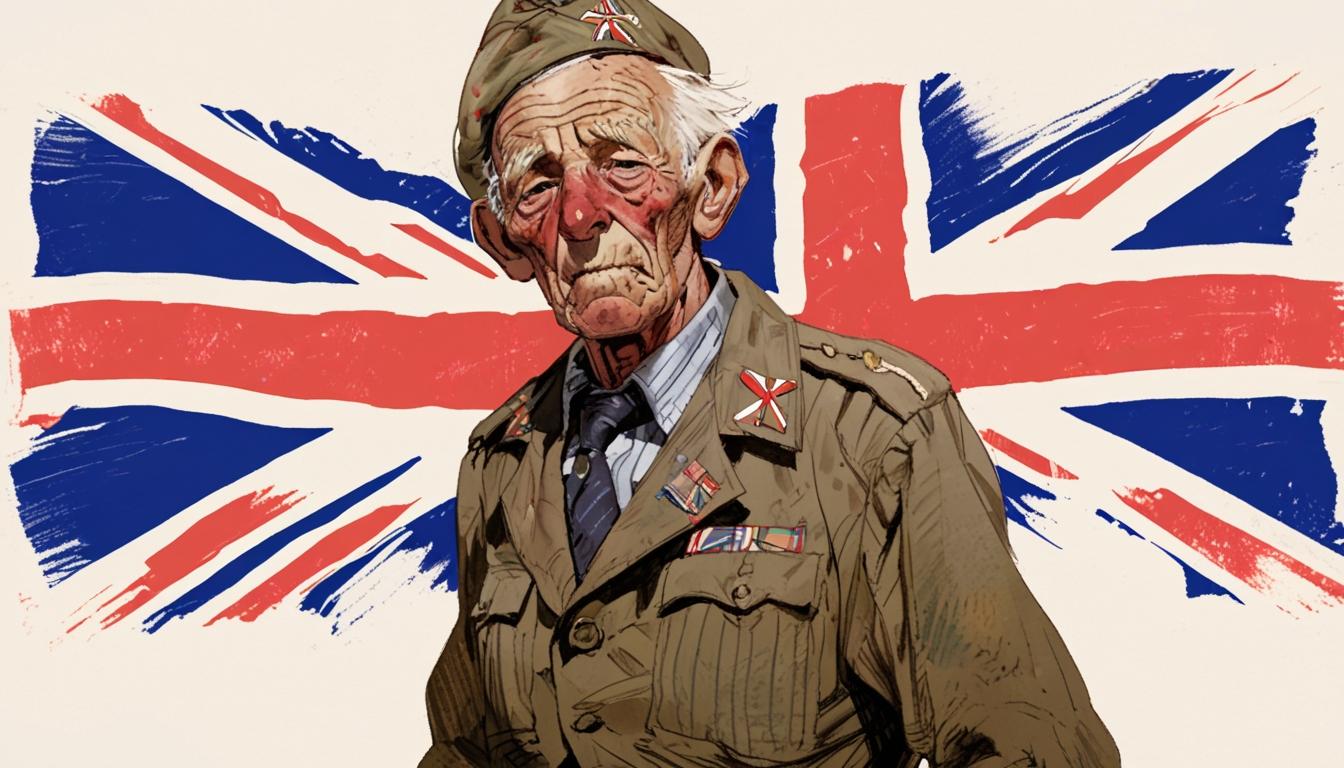Rethinking Victory: Peter Hitchens Challenges the Narrative of World War II
In a provocative episode of the Mail's "Alas Vine & Hitchens" podcast, best-selling author Peter Hitchens posed a contentious question: was Britain truly victorious in the Second World War? He argued that the public's entrenched belief in a simple, unabated triumph constitutes what he termed a “pseudo-religion.” This belief, he asserts, masks the harsh realities that followed the defeat of Nazi Germany, leaving Britain in a state that he describes as "a dump."
Drawing on personal reflections about his late father, who served in the Royal Navy during the war, Hitchens painted a sobering picture of the post-war landscape. He recalled how his father, despite serving valiantly, became increasingly disillusioned with the perceived victory as his life and the lives of many veterans failed to improve in the years that followed. "Did we really win the war?" Hitchens recounted, as he reflected upon his father’s seemingly rhetorical question that seemed laden with a profound sense of loss.
The situation in 1945 starkly contrasts with Britain’s emergence from the First World War, where, despite the heavy toll, the country maintained a facade of power and territorial expansion. Following the signing of the Treaty of Versailles, Britain expanded its Empire, seemingly solidifying its status on the global stage. Yet, as Hitchens aptly highlighted, the end of the Second World War presented a vastly different scenario. With a battered economy and rising independence movements across its colonies—often bolstered by American support—Britain’s global influence waned significantly.
Hitchens remarked on the severity of post-war life, noting that rationing persisted well beyond the conflict. The experience of his father mirrors that of many others from that generation, who found the honours of war were scarce compared to the weight of hardship. There were instances where veterans’ pensions, once a symbol of gratitude from the state, turned into meagre sums that offered little security. Hitchens declared, “After the Second World War, this place was a dump,” calling attention to the struggles that overshadowed national pride.
However, co-host Sarah Vine offered a counterpoint, advocating for the significance of VE Day as a celebration of the triumphs and sacrifices made for freedom. She argued that the essence of VE Day lies not merely in a celebration of victory, but in honouring the veterans and recognising the heavy toll that the conflict took on individual lives. Vine poignantly cited her grandfather, who returned from service psychologically scarred and struggle-filled, stating, “I think he would have celebrated his men.” Her perspective underscored the complexities of remembrance—balancing the honour of those who fought with an earnest reflection on the costs of war.
This debate echoes themes from Hitchens’s book, "The Phoney Victory: The World War II Illusion," wherein he meticulously examines the traditional narratives surrounding the war. He critiques the justification for Britain’s entry into the war and questions the retrospective claims regarding the motives for fighting. Hitchens posits that the war's escalation unwittingly aided Germany's capacity for unspeakable atrocities, complicating the notion of a “Good War.” His insights prompt readers to reconsider not just Britain’s role but the very underpinnings of historical narratives that have shaped collective identity.
This ongoing discussion reflects a broader reckoning with how the Second World War is commemorated and understood in contemporary Britain. Hitchens calls for a more honest reflection on the complexities of the past, arguing that the glorification of war often oversimplifies the narratives of loss and suffering that veterans endured. In doing so, he challenges society to confront uncomfortable truths while honouring the experiences of those who lived through one of history’s most tumultuous periods.
As the 80th anniversary of VE Day approaches, the question remains: how should Britain reconcile its historical triumphs with the stark realities faced by its citizens in the aftermath of war? What emerges from this dialogue is a call for a nuanced understanding of history—one that acknowledges both the victories and the tribulations faced by a nation seemingly marked by triumph yet burdened by the cost of conflict.
Source: Noah Wire Services
